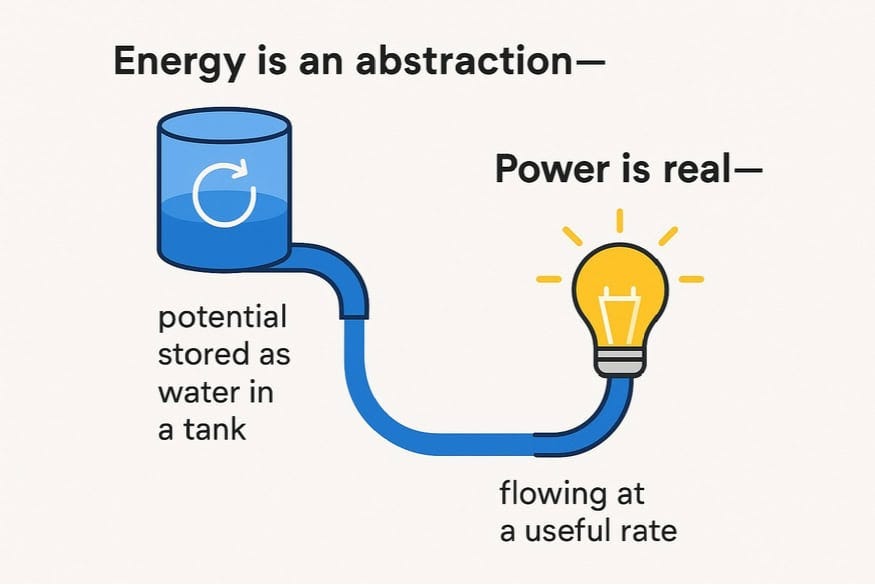“I don’t have much hope for this century,” Kristine Tompkins of said in a recent interview. She’s the CEO of Patagonia, and was speaking about the rapid unraveling of ecological and social systems. What she said wasn’t new—but the clarity and steadiness of her voice made it land differently. Sometimes it’s not new facts that move us, but a new weight behind them.
She added, “I don’t really think about hope very much.” That stuck with me. Over time, I’ve come to see hope less as a virtue and more as a shield—often a way to hide from fear. Fear of collapse, of not being enough, of powerlessness. Hope becomes a mask when we can’t face those fears directly.
Tompkins chose action. She helped protect over 15 million acres in Chile and Argentina and reintroduce lost species. She encourages people to do what they can: volunteer, connect with nature, offer their skills. It’s meaningful. But it may not be enough.
Most people who seriously engage with the human predicament feel the impulse to act—to fix, to intervene. We’re the only species that tries to repair the world. The rest focus on surviving, reproducing, and making the most of their short lives. What exactly are we trying to fix? Maybe that urge says more about us than about the world itself.
We tend to think we’re the only beings capable of meaning or joy. But nature suggests otherwise. Birds sing each morning—not out of duty, but out of being. Science offers reasons, but those don’t explain the beauty. Humans, meanwhile, wake to the burden of fixing. Our stories are soaked in redemption. Birds sing. Humans strive. There’s a lesson in that.
Alfred Lotka offered another way of seeing. Building on Darwin, he framed evolution as a function of energy. Systems evolve to maximize energy flow, he proposed—laying the foundation for the Maximum Power Principle.
Odum and Pinkerton advanced this idea. It’s not just energy that matters—it’s power: the rate at which energy flows. Too fast and you burn out. Too slow and you fall behind. Charles Hall extended this to Energy Return on Investment (EROI): what matters isn’t how much energy you produce, but how much remains after you subtract the energy it took to extract and deliver it.
“The maximum accumulation of energy allows maximum reproductive output which is, after all, what natural selection is based on.”
This shift in thinking changes everything. Many popular solutions—renewable energy, degrowth—clash with the way natural systems actually operate. Nature selects for power, not restraint.
Energy is potential, an abstraction. We can’t touch it, only measure its effects. It becomes real—useful—only when it flows. That flow is power. And power is what drives everything from machines to ecosystems. (Figure 1).
That’s why renewable energy isn’t a one-to-one substitute for fossil fuels (Figure 2). Fossil fuels deliver high-density, high-speed power—concentrated solar energy, stored in coal, oil and and natural gas, and released in bursts. This is what built industrial civilization.
Renewables are slower, more diffuse. Matching fossil fuel flow rates requires massive infrastructure and storage—systems that themselves demand energy.
Viewed through the Maximum Power Principle, this is a downgrade. It’s not just changing fuel—it’s stepping down to a system that delivers less usable power. A high-energy civilization can’t run on slower sources without major simplification.






You’re stuck in your doomer-reductionist frame, Barry. It’s become your version of belief—something you defend with near-religious conviction.
But there’s no hopium here. The message is straight Tolkien:
“Through the ages of the world we have fought the long defeat.”
What we need now is honesty—starting with our own psychological immaturity. It won’t change the trajectory, but it might change how a few of us face it—and possibly help lead what comes next.
Time to broaden the lens. The loop you’re in is getting stale.
All the best,
Art
Art, literally daily I read articles (or I should say skip through) that tell me, us (humanity) how bad things are: The climates out of control, result: droughts, floods, heatwaves and wildfires, the oceans are rising, becoming acidic, filling with plastic waste and worse microplastic. These plastic pieces and microplastics are being consumed by the wildlife and creatures that inhabit land and sea, in many cases killing them, or regurgitated and fed to their offspring with same result. But it’s not just wild life this plastic is ingested by, as it’s the air we breathe, rainwater and so the water we drink and the food we eat. And of course there’s the near daily reporting of peak or nearing peak of finite hydrocarbons, and so the problem of less energy dense and portable resources becoming unavailable to continue our hubristic lifestyles. All of these articles tell us in no uncertain terms the dire predicament we’re in, all part of the poly and meta crisis that’s racing ever faster towards us, result the extinction of mankind. But just when you think the article offers no hh cough, hhh cough hhhh, cough cough hhhh ope, (Hopium), If we only get together and do what this scientist/expert says or this spiritual leader, or follow this political or economic ideology, all will be well, Really! No, because Ain’t Gonna’ Happen. We are dealing with multiple predicaments not problems, and if you don’t know what that means: problems have solutions, whereas predicaments have outcomes that are difficult if impossible to reverse or fix. We (humanity) are so F%&KED! But if you wish to believe in Hopium you’re an Apocaloptomist. https://www.youtube.com/watch?v=GbPjwRzoMu8 🤔